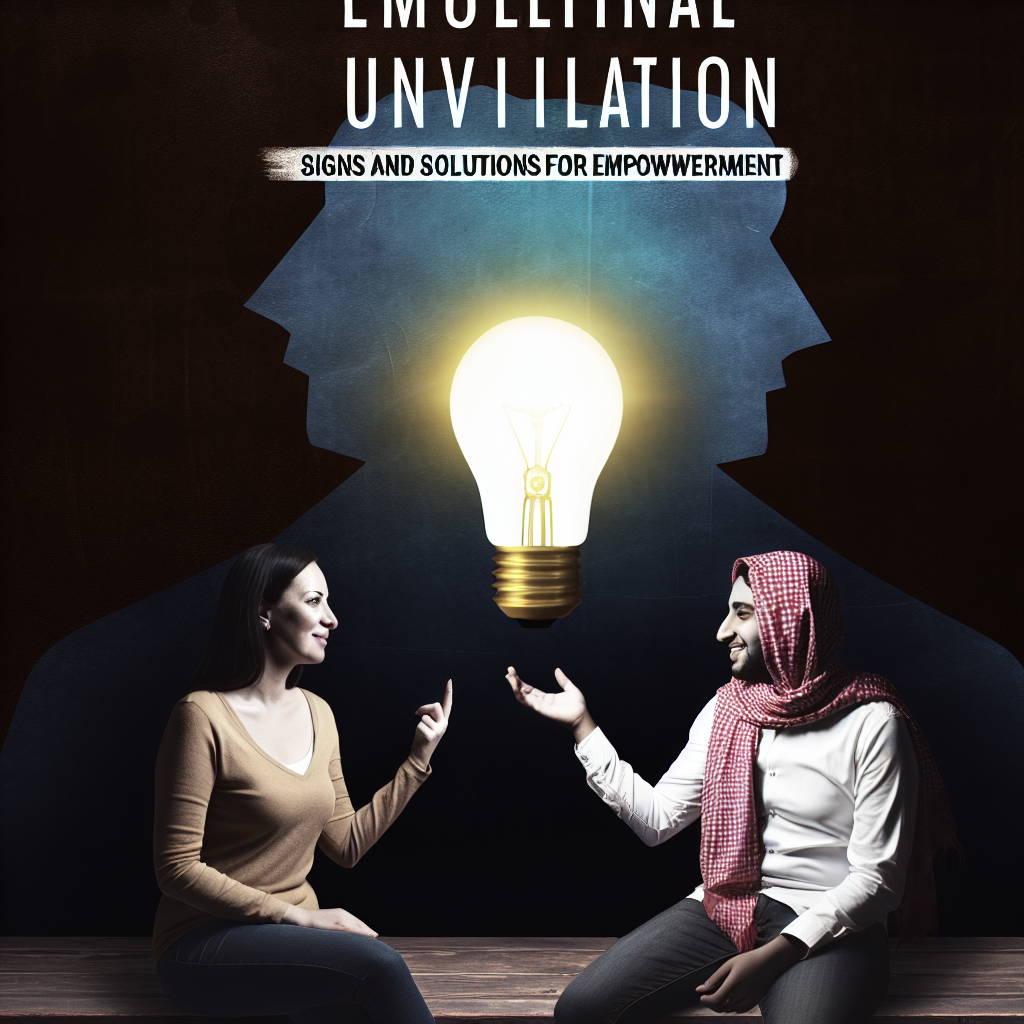
Emotional Manipulation Unveiled: Essential Signs and Solutions for Empowerment
Introduction
Have you ever felt like someone close to you is pulling your strings? Emotional manipulation can be subtle, insidious, and deeply damaging, often leaving victims questioning their self-worth and sanity. The phenomenon is alarmingly prevalent in various relationships—be it familial, romantic, or even professional. Understanding emotional manipulation is not merely about identifying toxic behaviors; it’s also a pathway to empowerment and recovery. In this article, we will explore critical signs of emotional manipulation and introduce practical solutions for reclaiming your inner strength.
Understanding Emotional Manipulation
What is Emotional Manipulation?
Emotional manipulation refers to a strategy used by individuals to control or influence others’ feelings, thoughts, or behaviors to achieve their own goals. These manipulators often exploit vulnerabilities, using tactics like guilt, fear, and flattery. The ultimate aim is to gain power and control over another person, often at their expense.
Why It Happens
Emotional manipulation often stems from insecurity or a lack of healthy relational tools. Manipulators may have experienced similar dynamics in their upbringing or might be dealing with personal issues that lead them to resort to controlling behaviors.
Recognizing the Signs of Emotional Manipulation
Understanding emotional manipulation is the first step toward empowerment. Here are some telltale signs:
1. Gaslighting
Gaslighting is a form of psychological manipulation where the manipulator makes the victim doubt their perception of reality. Common phrases include, “You’re overreacting” or “That never happened.”
2. Guilt Tripping
Guilt-tripping is another common tactic. Manipulators may say things like, “If you truly cared about me, you wouldn’t say that,” making you feel responsible for their emotional state.
3. Withholding
Withholding affection, information, or communication is a way to control the other person’s behavior. This tactic creates a sense of insecurity, prompting the victim to chase after the manipulator’s approval.
4. Over-Apologizing
Emotionally manipulative individuals often apologize excessively, which may seem positive on the surface. However, their apologies might be veiled attempts to redirect blame or regain control.
5. Love Bombing
At the beginning of relationships, manipulators might shower their targets with excessive affection and attention, only to later withdraw that love, creating cycles of dependency.
Case Study: The Co-Dependent Couple
One classic example of emotional manipulation can be seen in a co-dependent relationship. Sarah and John were in a long-term relationship where John frequently made Sarah feel guilty for wanting time alone. His approach was subtle yet effective, eventually leading Sarah to prioritize John’s needs over her own.
Relevance: This case illustrates how guilt can be weaponized in a relationship, pushing one partner into emotional submission.
| Tactic | Description | Outcome |
|---|---|---|
| Gaslighting | Invalidating partner’s feelings and reality | Self-doubt |
| Guilt Tripping | Manipulating feelings of responsibility | Emotional exhaustion |
| Withholding | Restricting affection or communication | Insecurity |
Solutions for Empowerment
The journey to overcoming emotional manipulation involves proactive efforts. Here are several practical strategies:
1. Establish Boundaries
Identifying and communicating your personal boundaries is crucial. What behaviors will you not tolerate? Make these boundaries known to those around you.
2. Practice Self-Reflection
Take time to assess your emotions and responses. Journaling can help you gain clarity on your feelings and identify any manipulative patterns.
3. Build a Support Network
Surround yourself with supportive friends and family who can provide validation and perspective. Your support network serves as a crucial lifeline during emotional turmoil.
4. Seek Professional Help
Consulting a therapist can provide you with the tools to navigate emotional manipulation. Therapy can offer a safe space to process your experiences and learn healthier relational dynamics.
5. Educate Yourself
Knowledge is power. The more you understand emotional manipulation, the less likely you are to fall victim to it. There are numerous books and online resources available for anyone looking to educate themselves further.
Case Study: The Empowered Survivor
Consider the story of Emma, who found herself in a toxic workplace environment. After experiencing gaslighting from her manager, she began attending workshops on emotional intelligence. Not only did she learn how to set boundaries, but she also discovered the strength to report her manager’s behavior to HR.
Relevance: Emma’s journey illustrates the power of self-education and taking decisive action against emotional manipulation, leading to a healthier work environment.
Conclusion
Emotional manipulation is a troubling reality for many, but recognizing its signs and implementing solutions can empower you to take back control of your life. Understanding the mechanisms at play equips you with the information needed to respond effectively and empathetically.
Take the knowledge gained from this article and empower yourself to foster healthier relationships—not just for yourself but for those around you as well. Emotional manipulation unveiled is not the end; it marks the beginning of your journey toward resilience and strength.
FAQs
1. What are the common tactics used in emotional manipulation?
Emotional manipulators often engage in gaslighting, guilt-tripping, withholding affection, excessive apologizing, and love bombing as strategies to maintain control.
2. How can I recognize if I’m being emotionally manipulated?
Feelings of confusion, self-doubt, guilt, and emotional exhaustion are often indicators of manipulation. If a relationship consistently makes you feel this way, it may be worth re-evaluating.
3. Can emotional manipulation occur in any type of relationship?
Yes, emotional manipulation can occur in romantic, familial, and professional relationships. It is important to acknowledge that no relationship is immune to manipulation.
4. What should I do if I suspect someone is manipulating me?
Start by journaling your experiences to clarify your feelings. Consider discussing your thoughts with trusted friends or seeking professional help. Setting boundaries is also essential.
5. Is it possible to recover from emotional manipulation?
Absolutely. Recovery involves self-awareness, rebuilding self-esteem, setting boundaries, and sometimes seeking professional guidance to facilitate healing.
By understanding emotional manipulation unveiled: signs and solutions for empowerment, you are taking the first step toward a healthier, more fulfilling life.















